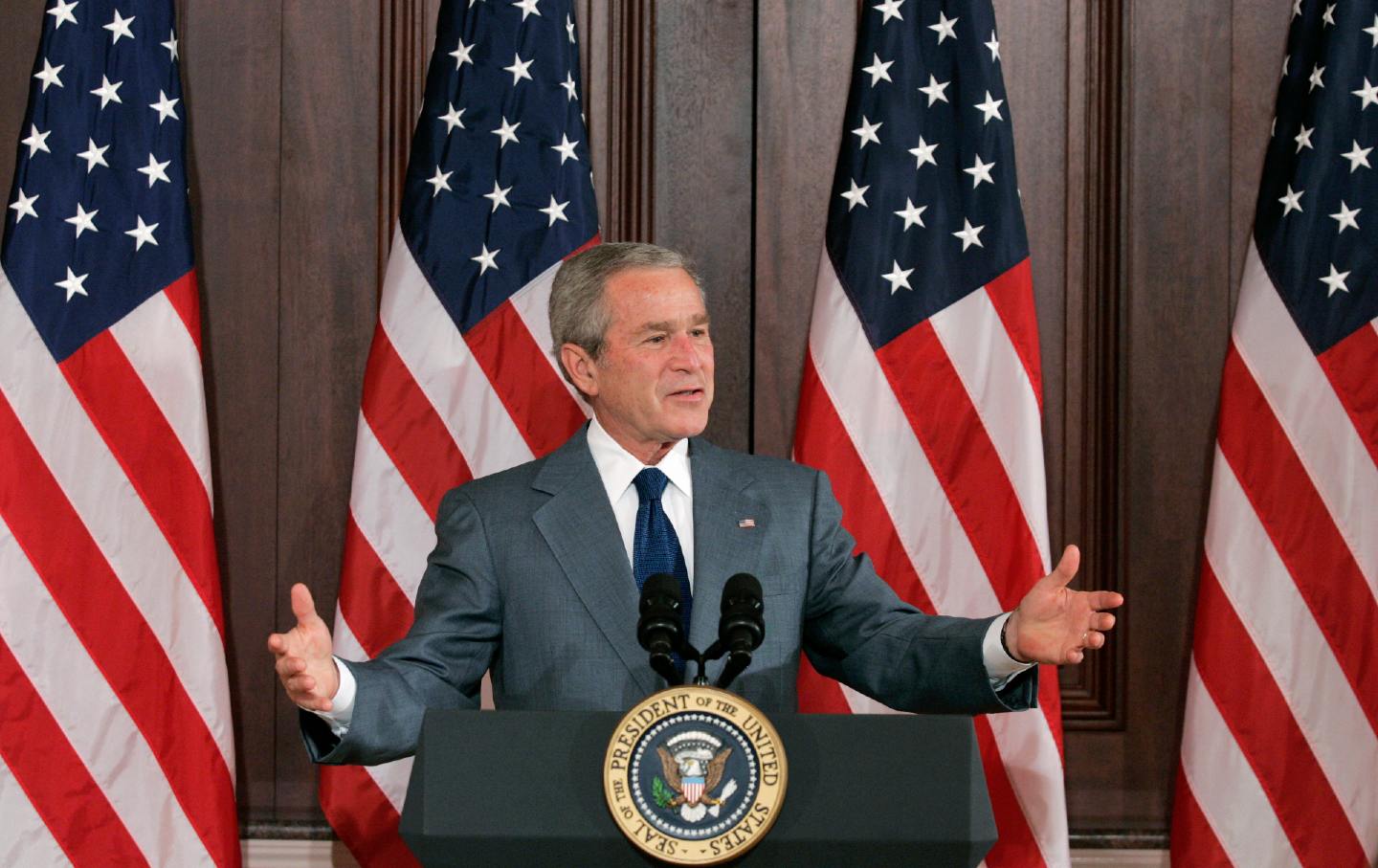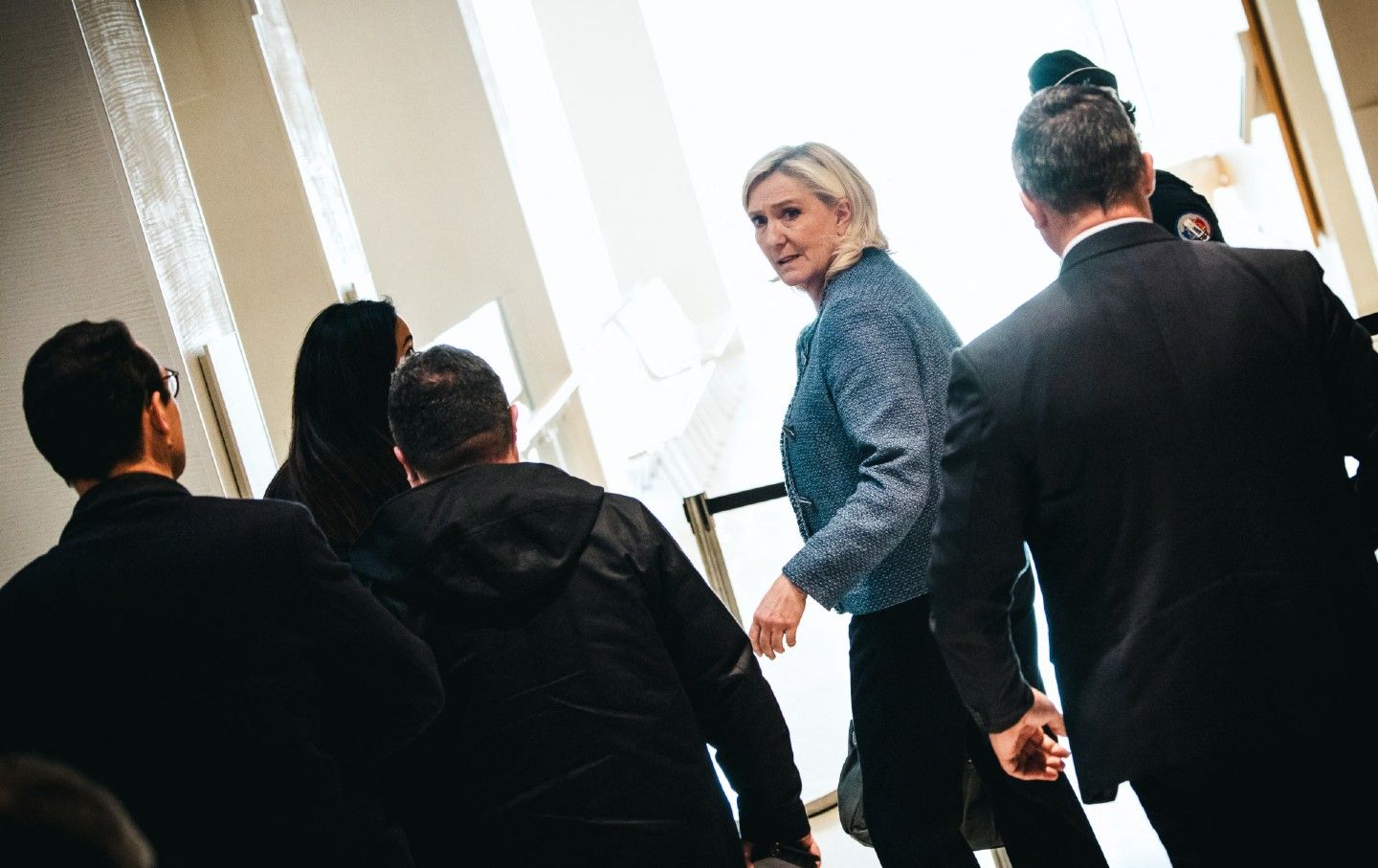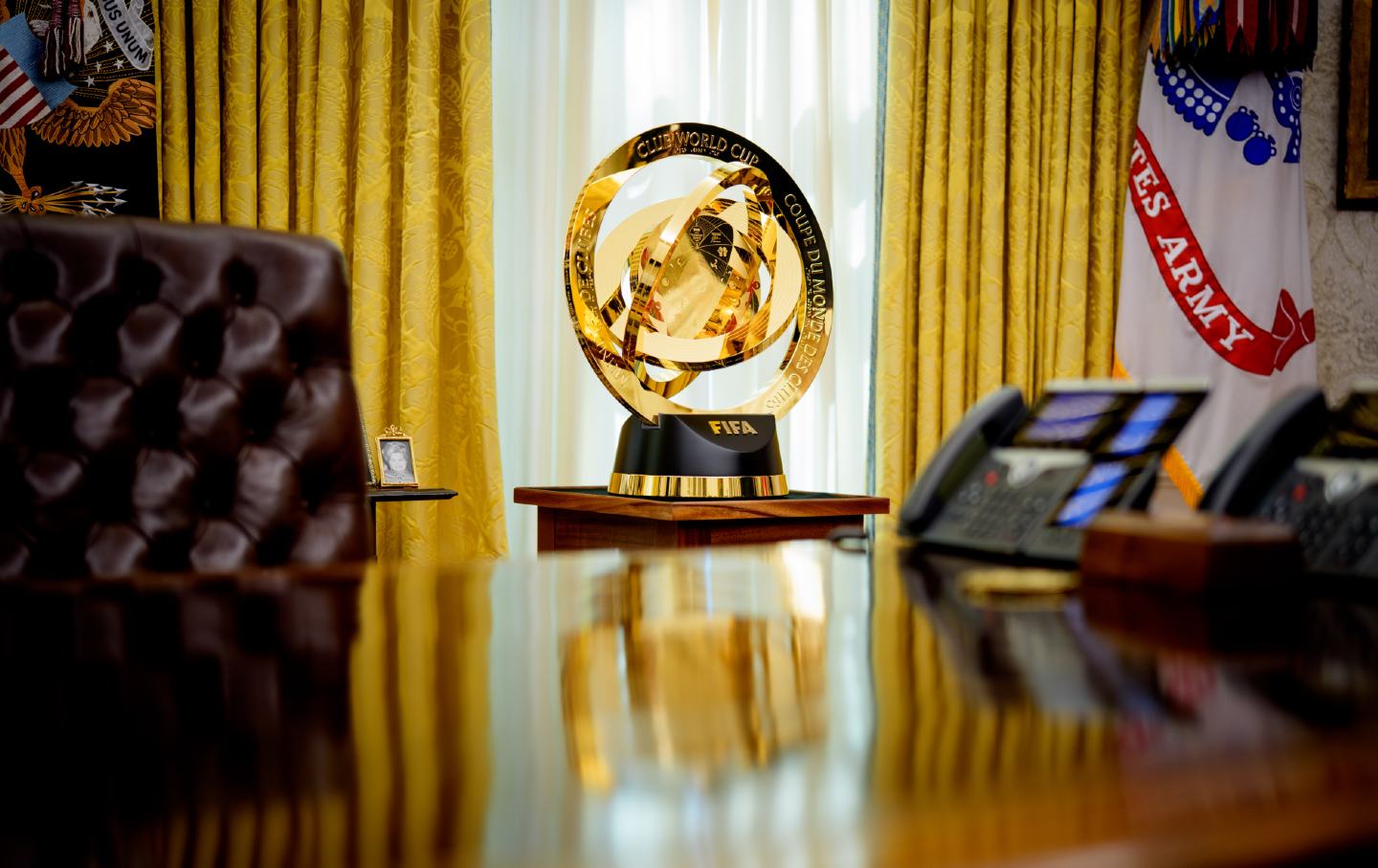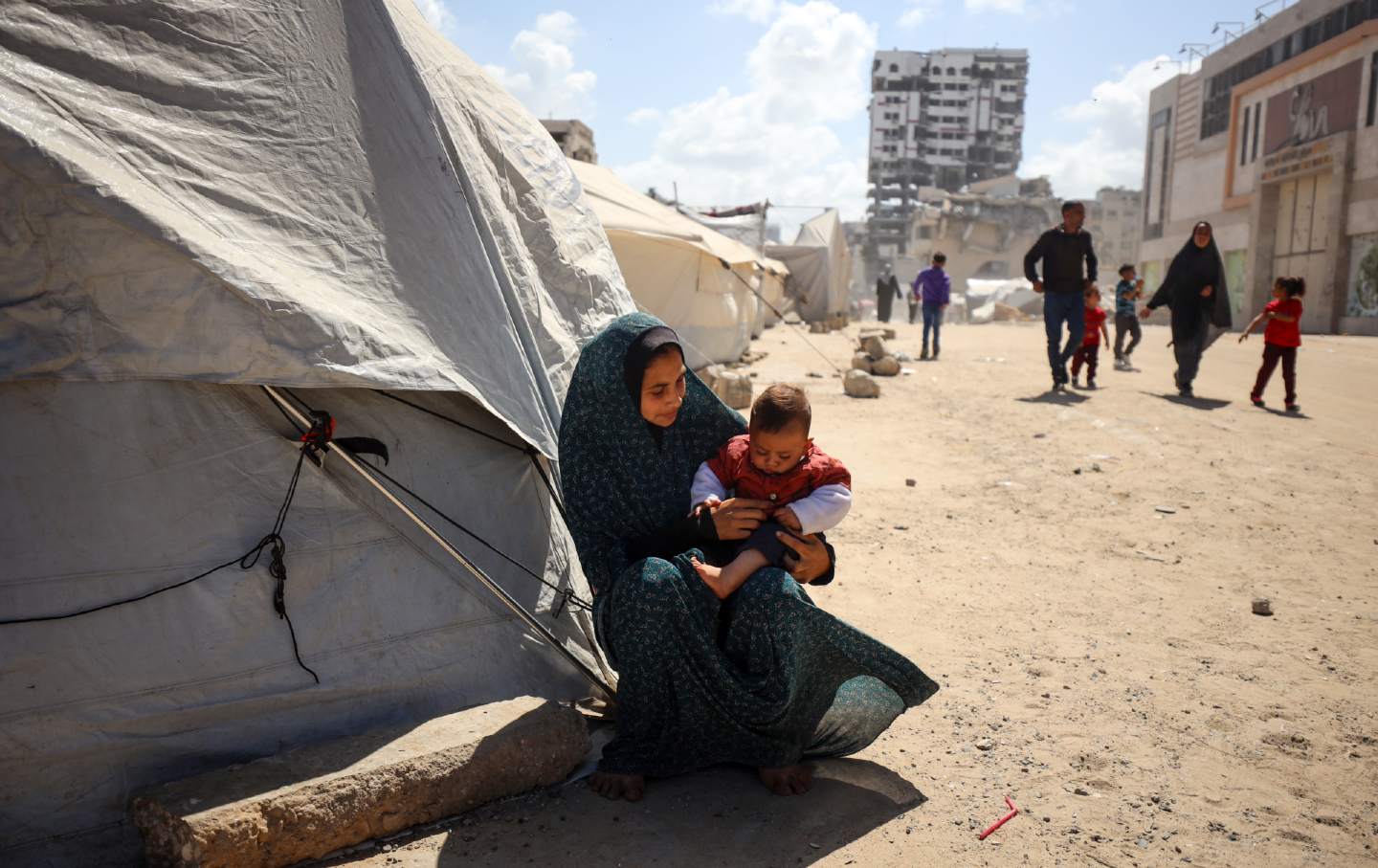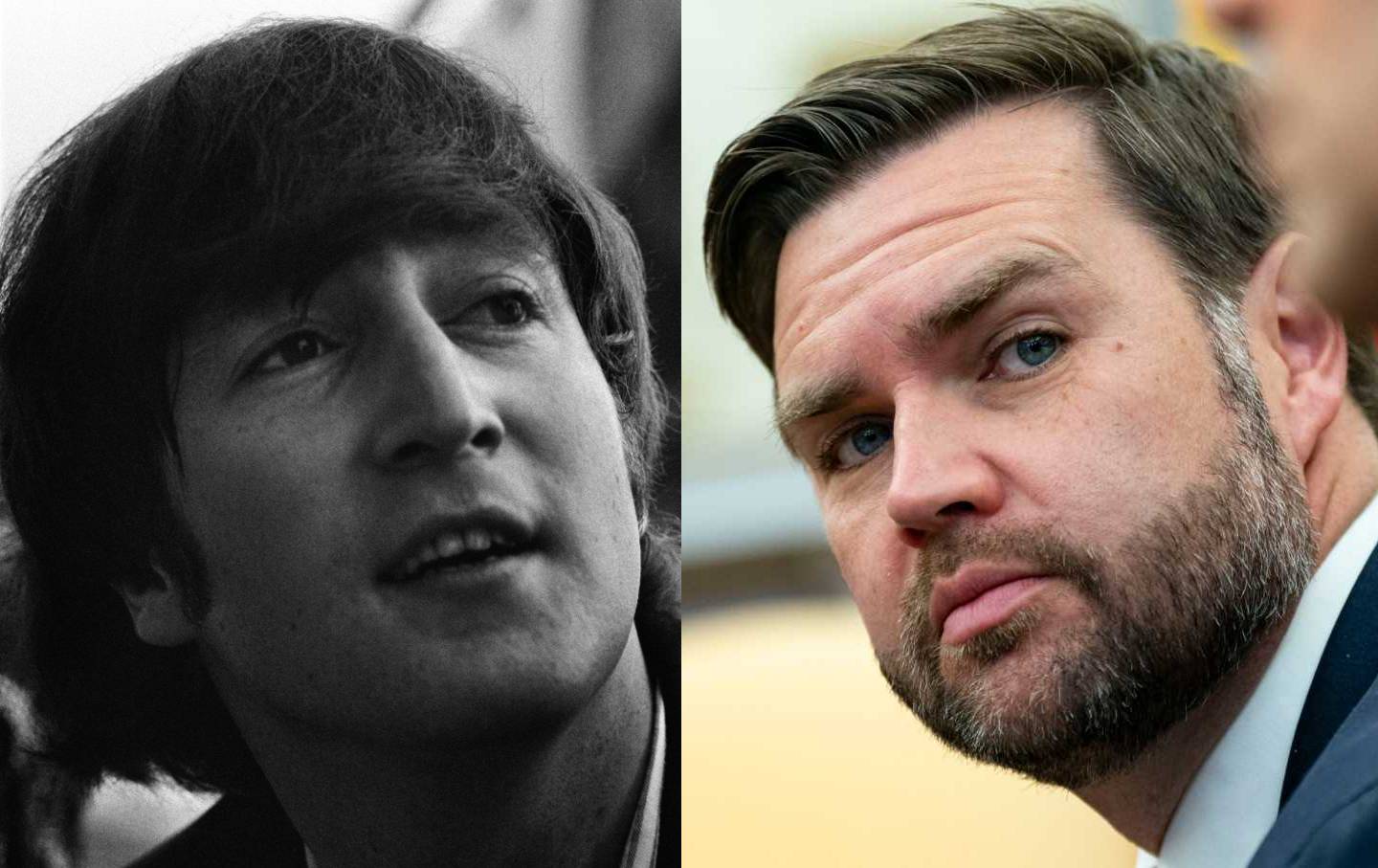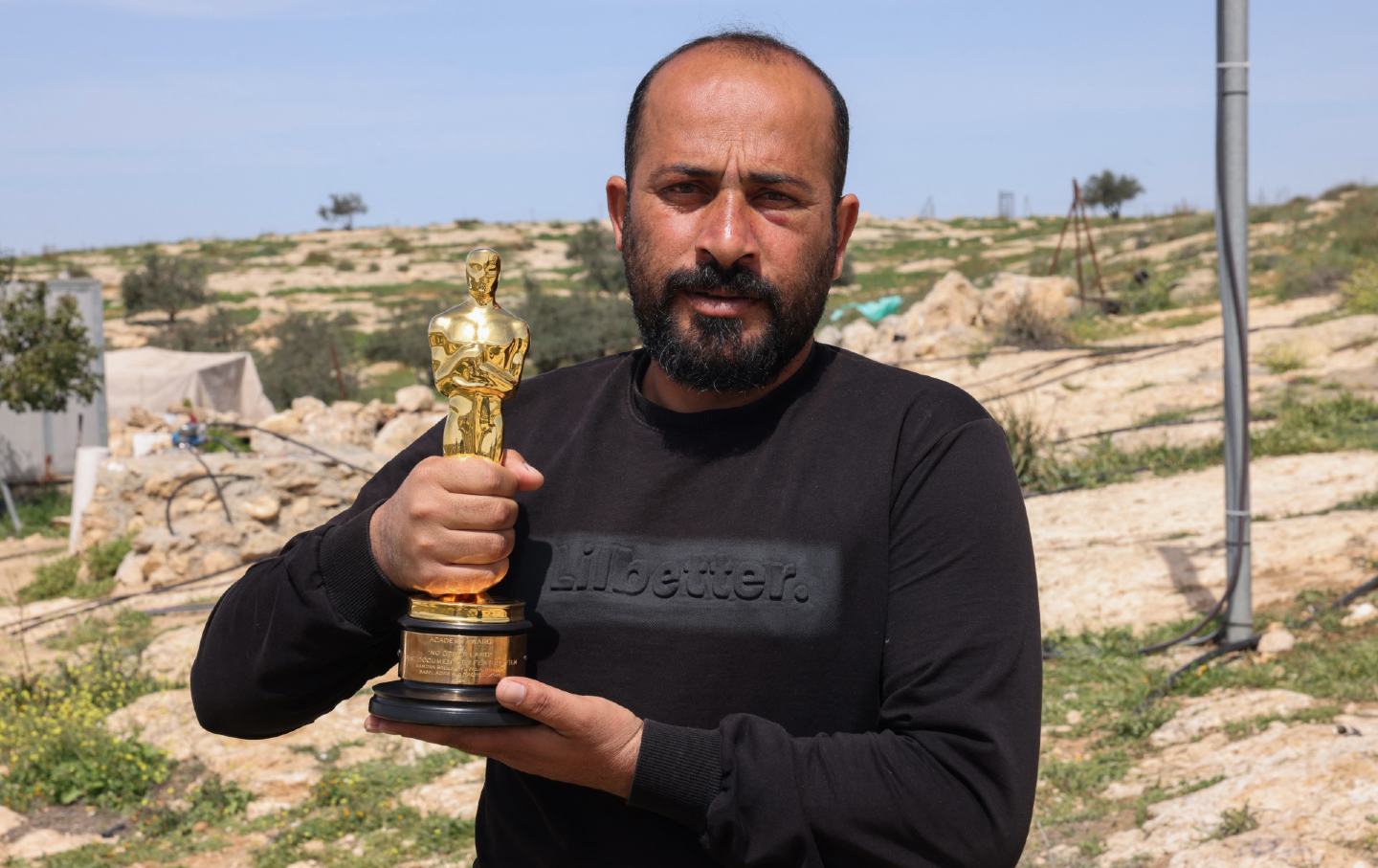In Russia, Clear Signs of War Fatigue
Recent protests by mothers and wives of deployed soldiers are one sign.
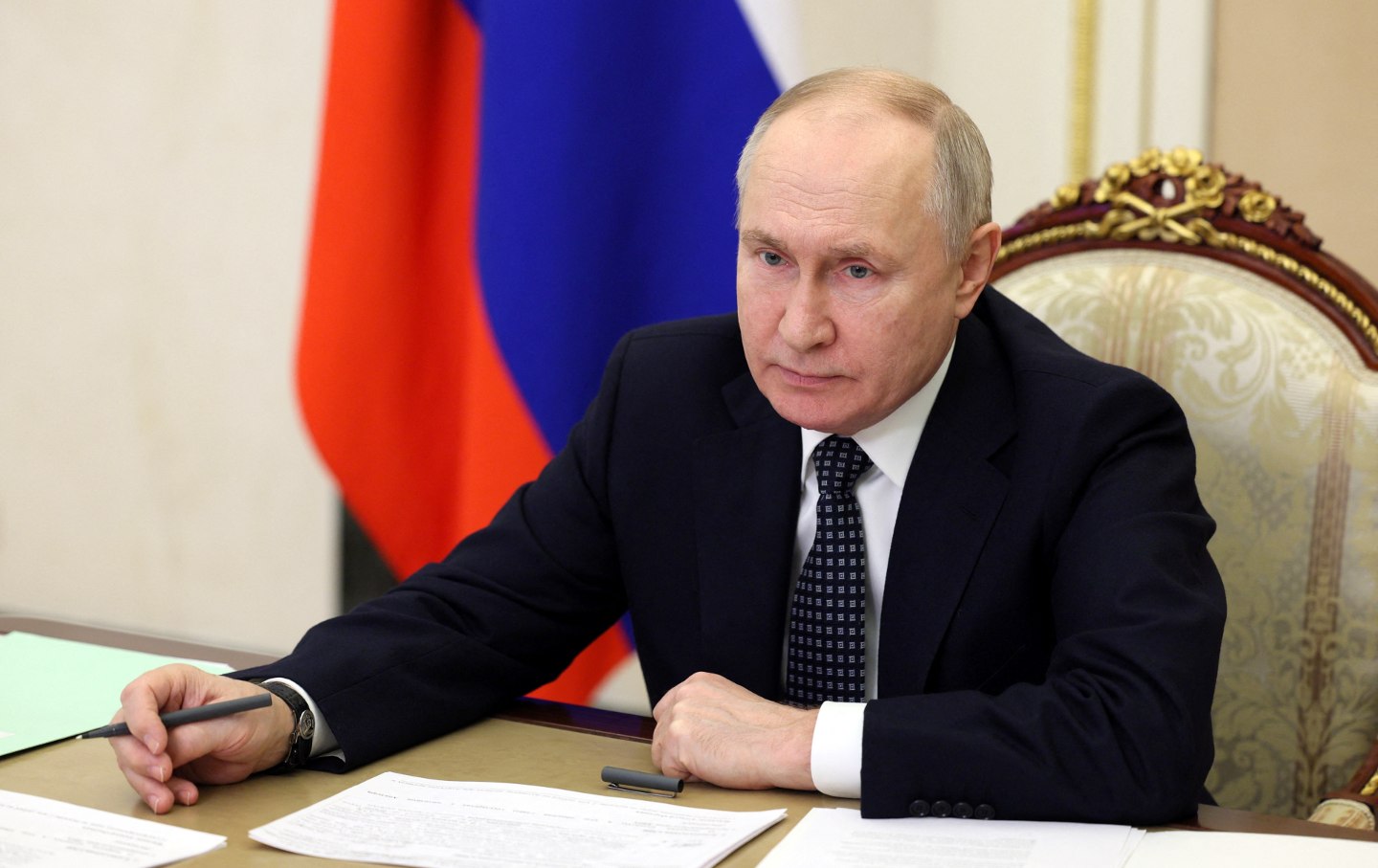
The strains of war are clearly visible in Ukraine: Its top military official has called the war a stalemate; continued funding from both the US and the EU is in doubt,; and manpower for fighting is dwindling. But what about Russia? Despite the claims of many observers that the Kremlin wants to fight a “long war,” ample evidence suggests war fatigue is setting in for Russia as well. If so, both sides might have an interest in bringing the war to an end.
To be sure, Russia appears to be in a much stronger position. Putin certainly exudes confidence. Numerous observers suggest that Putin must be disabused “of the notion that he can still take control of Ukraine by outlasting the West,” with others claiming that he is “clearly happy to await the outcome of the US election” in the hopes of more favorable terms with a future President Trump. According to EU foreign policy chief Josep Borrell, Putin “cannot be satisfied with a limited territorial victory,” since he “has decided to continue the war until the final victory.” Still others proclaim that those proposing negotiations to end the conflict “ignore the fact that the Kremlin shows no interest in peace.”
How to square such confident assertions with the recent reporting that Putin is signaling his openness to a cease-fire? That apparent contradiction is less puzzling when one looks closely at signs of war fatigue within Russia itself.
For one, strains are increasingly visible in Russia’s economy. Despite Putin’s boast of economic resilience and record-low unemployment, there are clear indications that the economy is overheating. Three interrelated problems—a labor shortage, inflation, and unsustainable spending—point to a longer-term challenge. According to conservative estimates, war mobilization and related emigration have cost the workforce hundreds of thousands of working-age males. The labor shortage fuels inflation, which in turn devalues the ruble, making imports even more expensive, further fueling inflation.
So far, the social impact has been tempered through high levels of government spending on the war and social welfare. But such expenditures on both guns and butter are unsustainable in the long run; otherwise, higher inflation and greater economic instability will ensue. Kremlin leaders are no doubt aware of these dangers: Besides sycophant advisers urging continued war, able technocrats who to date have steered the Russian economy away from disaster to date are now sending warning signals.
If not being warned by his ministers, Putin is now hearing it from the public. During his annual four-hour “direct line” press conference, the Russian president had to fend off questions about everyday concerns such as the rising price of eggs. Putin faces his own reelection this March. While he will undoubtedly win by an overwhelming margin, such shows of legitimacy remain crucial, and autocrats who remain aloof from everyday social and economic grievances do so at their peril.
Inflation and the labor shortage point to a more immediate problem for Russia’s war: limited manpower for military staffing. The large pay gains meant to attract contract soldiers are now running up against the higher wages that workers can get elsewhere without risking their lives thanks to the labor shortage. According to surveys by the independent Levada Center, when Putin issued his limited military mobilization in September 2022, “the public mood drastically deteriorated,” so much so that “the country had not seen such a dramatic and swift decline in public mood in thirty years of regular polls.” While the public mood soon recovered given the limited nature of the mobilization, a recent Russian Field survey shows that 58 percent of those polled are opposed to a second mobilization, with 61 percent saying they would experience “negative emotions” as a result. No wonder Putin ruled out further mobilization at his recent press conference. It’s far from clear that expanded mobilization would be less of a challenge for the Kremlin after the March election, especially given evidence of draft avoidance and evasion.
Recent public protests by mothers and wives of mobilized soldiers against the prolonged deployment of their sons and husbands underscore the problem of limited manpower. Their grievances are deepened by the treatment received by convicted felons recruited to fight the war (first by Prigozhin’s infamous Wagner Group and continued since by the Ministry of Defense). While they deployment of mobilized soldiers remains unlimited, the former convicts who survive—including murders and rapists—can return to their communities after six months at the front.
The women’s protest movement, organized under the heading of “Put Domoy” or “the way home,” is what activists call a “dilemma action”: Overtly suppressing the wives and mothers of soldiers at the front could backfire on the authorities, yet allowing their demands to spread could bring the entire “special operation” (the official euphemism for the war) into question. While Kremlin leaders will undoubtedly do all they can to prevent the latter scenario, they nevertheless appear unable to rotate soldiers sufficiently or lower the length of their mobilization.
Meanwhile, polling data from recent months provides further evidence that war fatigue is setting in among the population. A survey by the Levada Center shows that a clear majority (56 percent) of Russians support negotiations to end the war—though, in an important caveat, without giving up the territory that Russia has seized. Likewise, a survey by Russian Field found that 48 percent prefer an end to the “special military operation,” and only 39 percent want it to continue. Further, 70 percent of Russians polled by Levada would support Putin’s decision to end the war “this week,” while in the Russian Field survey, 74 percent said they would support Putin’s doing so “tomorrow,” with only 18 percent opposed. Another Russian Field survey just before the new year that asked what Russians hoped for in 2024 found that 50 percent of respondents wished for “peace,” “a peaceful sky,” or “an end to the ‘special operation.’” Only 6 percent expressed a desire for “victory.”
Putin, of course, claims that Russia will continue until the goals of “denazification” and “demilitarization” are met. Yet, particularly for a dictatorship with full control over major media, those objectives are sufficiently vague that they can be redefined to suit the regime’s interest. With an end to the conflict, the Kremlin could boast about having added territory to the map of Russia while standing up to Western powers, though it would fall well short of its original goal of regime change in Kyiv. While critics will claim that ending the conflict now will reward the Kremlin’s aggression, the long-run prospects for Russia are rather grim. Absent sizable concessions from the Russian side—highly unlikely—sanctions will almost certainly remain, weighing down the Russian economy for a decade or more. None of this is to say with any certainty that Putin is inclined to agree to a cease-fire. It may be, as some claim, that he needs continued war to justify the hardship endured by the Russian population. Indeed, it is best to avoid making confident predictions about Kremlin behavior.
Russia is a much more closed society than Ukraine; given limited access to journalists, it has become a much more difficult country to analyze since the full-scale invasion of February 2022. Hence, rather than basing policy decisions on bold assumptions—that Putin “is clearly happy” and “has no interest in peace”—some humility is called for.
Yet there are clear signs of war fatigue in Russia as well as Ukraine. Whether this might lead Russia to agree to end to the conflict is one assumption that can be tested empirically. If Ukraine and its Western backers propose a cease-fire and Putin refuses, he can be called on it, loudly and publicly. He alone will have to explain to the Russian people and the rest of the world why the suffering and bloodshed must continue. It’s time to find out.

